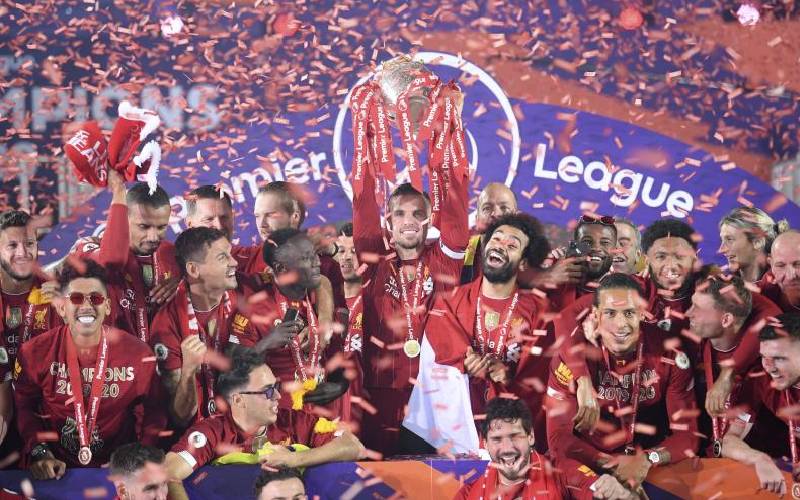×
The Standard e-Paper
Fearless, Trusted News

Britain Soccer Premier League Liverpool's Adam Lallana celebrates with the trophy following the English Premier League soccer match between Liverpool and Chelsea at Anfield Stadium in Liverpool, England, Wednesday, July 22, 2020. [AP]
A number of European football clubs are listed on the securities exchange and their share prices have not performed well in the last one because of Covid-19.